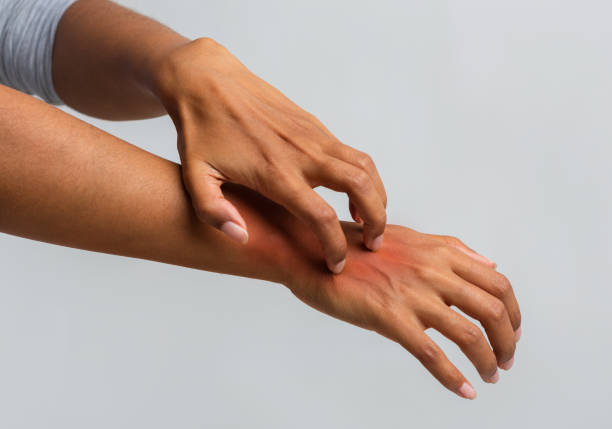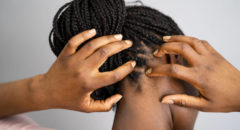
The one thing about dry skin is that it stays consistent! No matter the season, if you suffer from dry skin it’s going to be dry all year round. As annoying and unfortunate as that is to deal with, unfortunately, many people suffer from dry skin and there are so many different types of conditions that can cause dry skin. You can get dry skin from taking prescribed medications because dry, flaky skin and rashes are side effects or symptoms. You can get dry skin from inheriting it or as you age since your skin's natural oils begin to lessen. However dry skin begins to develop on you, the one thing that can be noted is that it’s hard to deal with and can have a huge impact on your daily life, especially when it comes in the form of medical conditions such as eczema and psoriasis.
Itchy Skin And Rashes During Summertime And How It’s Possible
When it comes to having itchy skin or developing rashes anywhere on the body, it’s not uncommon to experience them during the summertime. In fact, many people experience more rashes and dry skin during the summer than they would during the drier months such as fall and winter. This is because heat can cause a rash as well.
There are a few different types of summer rashes you can develop, one is a heat rash. A heat rash is when your sweat ducts are being blocked and sweat is unable to come out of your skin, which leads to irritation and itchiness. Heat rashes are usually red or pink and can be found on parts of the body that are covered by pieces of clothing.
There are other ways rashes can form such as bug bites, athlete's foot, swimmer's foot or even having an area of your skin exposed to plants like poison ivy, but those are not the only reasons why rashes can form or worsen. Sometimes you may be dealing with a preexisting condition such as psoriasis, which can worsen during the hot summer months.
RELATED: Psoriasis Lowering Your Confidence? Here’s How To Fix That
You Could Be Making Your Symptoms Worse dry skin
When dealing with preexisting medical conditions that cause rashes and discomfort, it’s important to know your triggers and what may cause a flare-up. This is because you could be making your symptoms worse without even knowing.
For instance, stress can cause your symptoms to worsen regardless of if you’re dealing with just the heat or an autoimmune disorder that causes rashes.
Wearing heavy and dark clothes can also worsen a rash or flare-up when dealing with the summer heat.
Another way you could be making your symptoms worse is by what you consume or what you’re not consuming. You have to keep yourself hydrated at all times but especially in the summer due to the heat. If you aren’t drinking lots of water or eating foods that will make you more dehydrated, that can cause your rashes and dry skin to worsen. Your body needs hydration.
How To Handle The Season While Living With Psoriasis/Psoriatic Arthritis
When living with psoriasis or psoriatic arthritis during the summertime, being aware of what can cause a flare-up and doing what you can to prevent it is important and it doesn’t even have to be difficult.
One way is to make sure your stress levels are as low as possible and if you notice that you are beginning to stress, do some mindful meditation exercises or practices to reduce your stress.
Wear sunscreen as much as possible and always reapply it. Make sure your water intake is as much as you possibly can and keep your skin moisturized as well.
Another helpful tip is try to limit your alcohol intake as much as you can. Not only can it mess with your medication but it can also make you feel worse if you are consuming it in large amounts.
RELATED: Ten Ways To Prevent Psoriasis Flare-Ups
In the Middle Of A Flare-Up? Here’s A Few Helpful Tips dry skin
When in the midst of a flare-up, the first thing you want to do is try to calm yourself down. This may be difficult but remember, stress worsens symptoms.
Once you’ve calmed down to your best ability, if you’re experiencing pain and you got the okay from your doctor, take some pain medication that was discussed by you and your doctor.
Taking a few minutes to stop and rest can be helpful as well. If you’re experiencing skin rash flare-ups, put a cool wet rag on the areas that are bothering you and then apply ointment to help with itching.
You can experience rashes and flare-ups even during the more moist months of the year, but you don’t have to let it stop you from enjoying the spring and summer fun. Just be mindful then go ahead and live it up.








